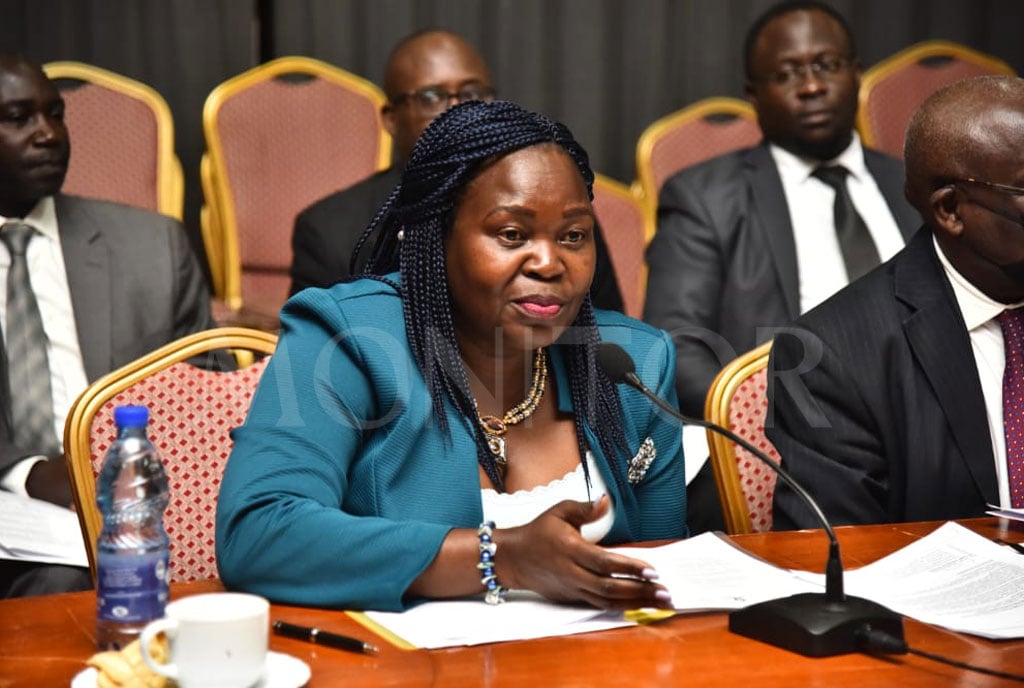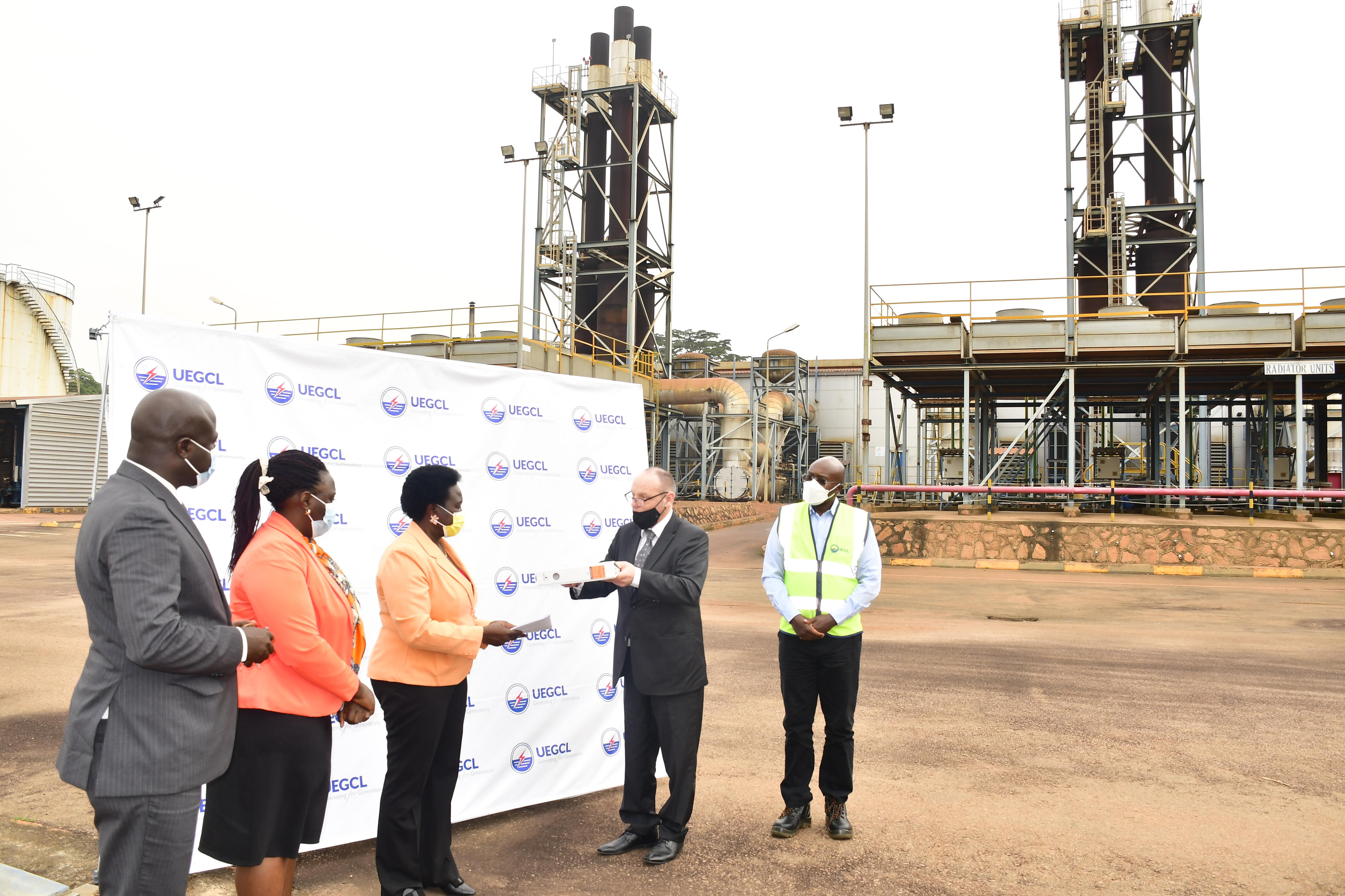Prime
Queries over Shs58b pay for botched thermal plant

Energy minister Ruth Nankabirwa. PHOTO/FILE
What you need to know:
- While the energy ministry describes the $16m pay as “an out of court settlement”, this one is specifically peculiar owing to the fact that the circumstances that led to the delay in starting commercial oil production—now primed to start in the last quarter of 2025—were beyond government’s control.
Energy minister Ruth Nankabirwa last Thursday appeared before the parliamentary Natural Resources Committee to defend a Shs155.6b supplementary expenditure that includes $16m (Shs57.6b) payment to a Spanish firm, Albatross Uganda Limited.
The company entered into an implementation agreement with government through the Energy ministry during the Financial Year 2014-2014 to establish a 50MegaWatts (MW) thermal generation plant in Itara Village, Bugahya County in Hoima District. The venture, however, never materialised.
Ms Nankabirwa told MPs the company raised a claim to the government and after studying it, opted for out of court settlement because it feared the high costs that it would incur in courts of law.
“Subsequently, government represented by Ministry of Finance, Planning and Economic Development, Ministry of Energy and Mineral Development, and Attorney General, signed a settlement agreement on August 5, 2021 to reimburse and purchase costs and assets respectively,” she said, adding that the company had strong grounds for the claims and if it went to court, government would lose more of tax payers’ money.
Albatross Uganda Ltd ventured in Uganda in 2010. The company registration files from Uganda Registration Services Bureau (URSB) detail that it is a subsidiary of Fomento Energy S.L, and was registered in 2010 with business woman Aminah Hersi listed as a minority shareholder. In 2022, Ms Hersi relinquished her shareholding to Fomento.
The company first planned on establishing a thermal plant in Tororo District, industry sources intimated, where Ms Hersi owns land. The plans were revised to establishing a plant on Hoima on backdrop of existing plans at the time to develop thermal power from crude oil and associated gas to only oil companies.
Commercial oil production was primed to start in 2020 and so it was assumed there would be a steady supply of crude oil and gas. In an ideal reservoir, there are two types of gas reserves; associated (located within the oil fields) and non-associated gas (independent from the fields). Most of Uganda’s gas discoveries is located within oil fields.
In January 2015, the electricity regulator, Electricity Regulatory Authority (ERA) had even ring-fenced the plans by issuing a moratorium issued and gazetted by the ministry of Energy, restricting the proposed thermal power from crude oil and associated gas generation to only oil companies—then as Anglo Irish Tullow Oil, Cnooc, and Total E&P.
“However, due to the delayed production of first oil and development of the oil refinery, the Albatros project was unable to commence as envisaged. Government found it costly and unsustainable to provide an annual subsidy ($74.5M) for the investor to use imported oil,” reads in part one brief seen by this publication.
Subsequently, the government and Albatross mutually agreed to discontinue the project and reimburse the developer for expenses incurred in development of the project process, retain the land and other assets of the project.
The brief indicates that the company presented claims amounting to $16m (Shs58b) incurred on the asset acquisition and other operational expenses, of which $4.768m (Shs17b) was agreed upon as a partial settlement by both parties and has so far been paid.
While ministry describes the $16m pay as “an out of court settlement”, this one is specifically peculiar owing to the fact that the circumstances that led to the delay in starting commercial oil production—now primed to start in the last quarter of 2025—were beyond government’s control.
For instance, in February 2014, the government and oil companies agreed to a commercialisation plan for Uganda’s oil projection, which included development of a crude oil export pipeline, refinery, and development of the oil fields. The oil pipeline is purely an undertaking by the oil companies while the refinery was a long shot from day one.
Mr Patrick Obalim Okot, who is listed in URSB files as a company secretary, described as “shocking” the planned payout to the company.
“There was really very little work done so one wonders what exactly government is paying for. As far as I know, there were some operational expenses incurred, but not substantial as the money we are paying them,” he said, adding, “If we spent a lot of money, and which I think is fair settlement is about $2.5m (Shs9.3b).”
Among the major costs the company incurred, Mr Obalim detailed the land in Hoima acquired at about $250,000 (approximately Shs930m), undertaking an Environment Impact Assessment (EIA), and legal fees for drawing among others a Power Purchase Agreement (PPA).
“Most of the other work was done by consultants. On what basis is Albatros claiming $16m when the money was picked by the parent company in Spain? I also plan to write a protest letter to the Attorney General’s office. As far as I know, there is no court case,” he said.
Another source familiar with the matter intimated that some of the company’s directors have good contacts at State House, where the reimbursement deal was sealed.
Gazetted
In January 2015, the electricity regulator, Electricity Regulatory Authority (ERA) had even ring-fenced the plans by issuing a moratorium issued and gazetted by the ministry of Energy, restricting the proposed thermal power from crude oil and associated gas generation to only oil companies—then as Anglo-Irish Tullow Oil, Cnooc, and Total E&P.




